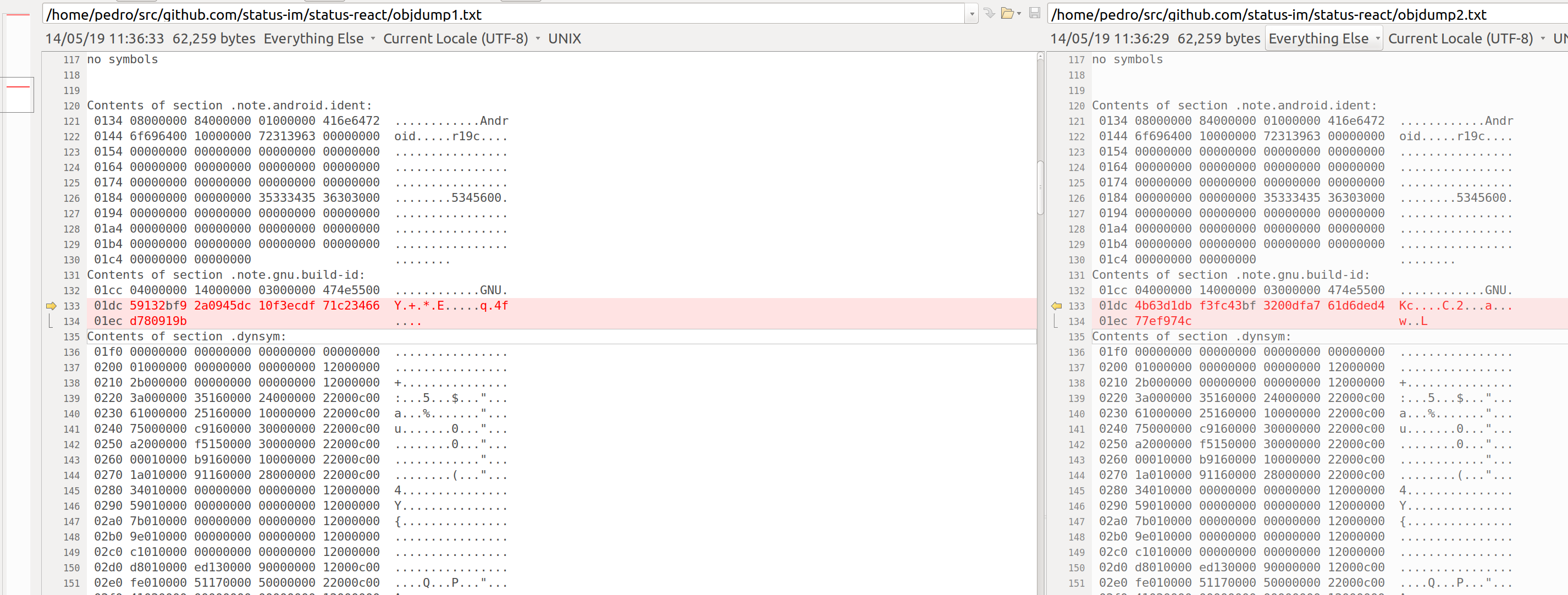After a quick test of disabling our usage of Timbre, this is the report on the differences between 2 builds of the same commit:

The main issue seems to be the lib folder (which contains artifacts built by RN Android using the NDK). The differences in META_INF can be assumed to be implicit.
Comparing the .so files with objdump -xs shows that the differences in the .note.gnu.build-id section:

Problem
In order to provide verifiability in the builds we provide to users, we want to make our builds reproducible (Android first). This will also allow us to publish the Android app on F-Droid.
Implementation
The recent effort of migrating to Nix (including pinning our tools, SDKs and ensuring a pure build environment) should have done most of the work required for reproducible builds (Nix takes care for instance of setting build artifacts' timestamps to a known value).
Comparing 2 builds from our CI build servers yielded a single type of differences in index.android.bundle, related to how our logging library and Leiningen interact. Leiningen normally creates a temp file path that ends up in the js code, and this file path is used by Timbre to calculate a callsite ID (although fixing the path is not enough because Timbre also adds a random number before hashing everything). We'll need to address this by either replacing Leiningen or modifying/replacing the Timbre logging library.
Acceptance Criteria
Notes
Issue for similar effort @ Briar: https://code.briarproject.org/briar/briar/issues/1273 Reproducible builds post @ F-Droid: https://f-droid.org/en/docs/Reproducible_Builds/ SOURCE_DATE_EPOCH: https://reproducible-builds.org/docs/source-date-epoch/
Future Steps